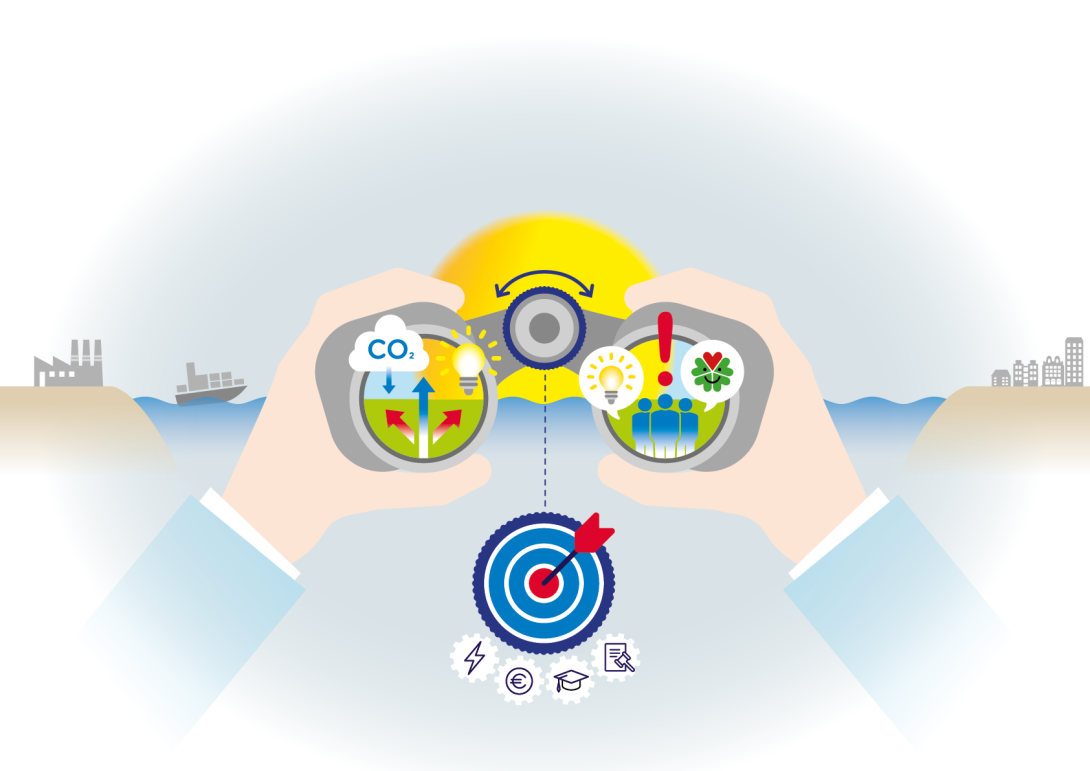On May 25, 2023 AmCham presented its 2023 Investors' Agenda of Priority Points ('Priority Points') and the Investment Climate Study. The first copy was handed to Micky Adriaansens, Minister of Economic Affairs & Climate Policy. The Priority Points and the Investment Climate Study are at the basis of AmCham's advocacy work and will guide AmCham's dialogue with the Government in the months ahead.

Driving Green Growth
The Priority Points contain AmCham's key recommendations to the Dutch Governement for a strong and healthy investment climate in the Netherlands and are composed in close collaboration with AmCham's Committees and member companies. The 2023 edition is titled 'Driving Green Growth'.
The Netherlands has a long history of being an economic powerhouse, with the high-tech, (petro-)chemical, energy and food processing industries as important pillars underneath that economic success. These industries have attracted a lot of investment to the Netherlands and are considered state-of-the-art by global standards. Other segments of the economy benefit from the well-developed industrial ecosystems in the Netherlands as well – SMEs, innovative startups, various service industries, industries further down the chain.
Now that we are going through a fundamental economic transformation to achieve net zero, the basic and manufacturing industries will be needed to provide carbon-free and circular solutions with healthy economic growth as an essential pre-condition. According to McKinsey, funding the energy transition will cost 8% of GDP annually in the Netherlands, which will result in a decline in prosperity – something unseen since the 1980’s – if economic growth is not kept up. All industries will have to play their part in maintaining the Netherlands’ earning capacity, and in providing the sustainable solutions and base materials to facilitate the transition to a net zero economy.
The basic and manufacturing industries form a critical link for the transformation of the economy, especially so in a world where geopolitical tensions increase and where more and more countries realize that a certain level of strategic autonomy and self-reliance is critical to ensure stability and have access to essential materials, products and goods. All industries are tasked with achieving sustainability. The basic industries in this context are operating under the most regulated regime, which is intended to give them the leading edge as compared to industries in other parts in the world. Stimulating industries within that ambitious frame and collaborating on sustainable pathways, rather than pushing them away from production here, offers the Netherlands an opportunity to become a shining example in the global transition to net zero. In its Priority Points, AmCham shares recommendations that can help the Netherlands succeed whilst balancing the needs of society, sustainability and business by STIMULATING what we already have, TRANSFORMING what has potential to further improve, and ENABLING the economy through (among others) talent and infrastructure.
- English version - Driving Green Growth
- Dutch version - Aansturen op Groene Groei
Investment Climate Study 2023
The Investment Climate Study is each year commissioned by AmCham and executed by Bain & Company and provides a fact-driven foundation for AmCham's advocacy work and Priority Points. The Investment Climate Study provides insight in current Foreign Direct Investment (FDI) trends and the FDI position of the Netherlands. The core question addressed in this year’s study is how the Netherlands should respond to the changing macro-landscape and how the nation can thrive in the long-term by becoming an attractive and high-impact transition leader.
The most important conclusions from the 2023 Investment Climate Study 2023 are:
- 2022 (in particular H2) was a challenging year for global Foreign Direct Investment (FDI) as a result of inflation, recession risk and energy insecurity – the impact was strongest in the EU with large loss of share to the U.S. and China (-~30% ’21 vs. ’19).
- Within the EU, the Netherlands remains an attractive free-trading nation (~25% of EU FDI stock is in the Netherlands) with top-notch innovation. However, tight labor, infrastructure capacity and an uncertain policy landscape challenge the investment climate.
- In addition to these historical challenges, managing through the energy transition is critical for the Netherlands and the EU as the current energy set-up will (continue to) impact global trade competitiveness across industries.
- Europe is responding to competition on ‘green’ capital by China and the U.S. (Inflation Reduction Act) with its own subsidies. A collective fund can be considered the ‘lesser of two evils’ for the Netherlands versus state-by-state funding, given the deeper pockets of Germany and France.
- In this new playing field, it is important to prioritize ‘green’ capital opportunities where the Netherlands is well positioned to win – driving an integral transition across industries, e.g. in Tech, Industrial Food, Energy and Chemicals.
A summary is included in the Priority Points publication (Driving Green Growth / Aansturen op Groene Groei). A detailed presentation of the findings (slide deck) can be requested here.
Press release (in Dutch) / June 5, 2023 - download here.